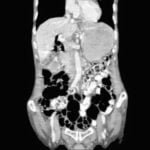
CANCER AND ITS IMPACT ON MENTAL HEALTH.
Contributed by
Dr.Arif Maghribi Khan
Consultant psychiatrist
email: arifmaghribi@yahoo.com
| According to the WHO theme of World Cancer Day 2024 the theme is “Close the Care Gap”. The campaign is all about understanding and recognizing the inequities in cancer care around the globe.’ Every single one of us has the ability to make a difference, large or small, and that together we can make real progress in reducing the global impact of cancer. We all need to play your part in creating a cancer-free world. The first step would be to reduce prevalence of cancer just like we did with once dreaded Tuberculosis. As we already know, better diagnostic facilities and treatment is available for various types of Cancers and in Jammu Kashmir a lot of new facilities have come up which will help in prevention, diagnosis and treatment. We all accept the link between depression and chronic disorders like diabetes and depression. More and more people diagnosed with Diabetes, Hypertension Rheumatoid arthritis are getting help from professionals to manage symptoms of emotional distress like hopelessness, disappointments, and anger. I would like to mention that a study was conducted by Dr Arshad Hussain, Dr Zaid Ahmad Wani, Dr Hamidullah Shah, Dr Abdul Hamid Zargar, Dr Mushtaq Ahmad Margoob, Dr Waseem Qureshi[Depression and diabetes: An experience from Kashmir] and published in Indian J Psychiatry 2020. As per this meticulous study, “Depression was present in 39.65 percent of patients. Depression was more prevalent in the age group of 29–38 years, in females as compared to males, among literates and government employees. Prevalence of depression among Type 1 diabetic patients was 60 percent, while as in case of Type 2, it was 37.75 percent. Depressed patients had higher fasting blood glucose levels as compared to non-depressed diabetic patients. The study concluded that Major Depressive Disorder (MDD) is inordinately high among adult diabetic patients, and the majority of the depressive patients have moderate intensity of MDD”. A study published in “International Journal Of Mental Health Systems” in 2023 which gives the following insights. “It is estimated that up to one-third of people treated for cancer in hospitals have a common mental health condition Rates of major depressive disorder are thought to be up to three times higher than in the general population .Anywhere from 8 to 24% of people with cancer are also livings with depression.Youth and young adults are at greater risk for depression and other conditions compared to adults with cancer. However mental health problems that arise as a result of cancer are too often sidelined, and there are several reasons why a person with cancer may not get help for their mental health condition: Cancer, depression and anxiety have shared symptoms like fatigue, lack of sleep, and decreased appetite which can make recognizing mental health conditions difficult .” So it becomes only natural to talk about mental health and cancer as well as taking necessary steps but I hope now we do not say to Cancer survivors or their family members that you ALL are depressed. We should always avoid generalization. World Health Organization (WHO)’s cancer agency, the International Agency for Research on Cancer (IARC), released the latest report of the global burden of cancer. WHO also published survey results from 115 countries, showing a majority of countries do not adequately finance priority cancer and palliative care services, as part of universal health coverage (UHC). According to the report” In 2022, there were an estimated 20 million new cancer cases and 9.7 million deaths. The estimated number of people who were alive within 5 years following a cancer diagnosis was 53.5 million. About 1 in 5 people develop cancer in their lifetime, approximately 1 in 9 men and 1 in 12 women die from the disease. Over 35 million new cancer cases are predicted in 2050, a 77% increase from the estimated 20 million cases in 2022. The rapidly growing global cancer burden reflects both population ageing and growth, as well as changes to people’s exposure to risk factors, several of which are associated with socioeconomic development”. But now from statistics let us move into daily world of a Cancer survivor! All of us have some experience of emotional and physical pain- from bruises to injuries , some of us have met with serious and not so serious road accidents , and even undergone minor and major surgeries. Can I today take you back to the emotional pain you felt when you injured your hands while cutting vegetables or working in a factory? Do you remember your trauma when you were lying in bed after a road accident? Do you remember how helpless you felt when general anesthesia was given in a major surgery? Now let us think of our brave hearts, yes brave hearts who are real winners in life, yes I am talking of cancer survivors! First they were diagnosed with Cancer[remember when you or I were diagnosed for seasonal flu which goes away quickly] , they had to be investigated by blood tests, cancer markers, CT scan, MRI , man I get frustrated if I am given too many investigations to check my lipids and obesity, and then these brave hearts get treatment which includes sessions of chemo and numerous surgeries. If you have a heart not necessarily a human heart as animals , birds also feel pain of humans but some humans do not feel pain of other humans, you will then definitely understand pain and emotion of cancer survivors. They DO NOT need our sympathy, they deserve well earned understanding if not empathy. Our heroes and heroines who fight cancer are real life heroes and heroines who as fellow human beings need a helping hand sometimes to cross over a broken bridge in rough weather. I would also say that family members of cancer survivors not only need to be aware of genetics and cancers but also mental health support. Family members also get exhausted and show symptoms of emotional distress; they need help from others around them and professional mental health experts. In my humble opinion based on practical life experiences of people I interact with, not only a team of surgeons, physicians should take an active part in treating a cancer patient but psychiatrists, psychologists should be an integral part of the team. Our wonderful surgeons can take organs affected by cancer out of the body but we need to take out slowly but steadily trauma, hopelessness, and the victim-hood feeling of a patient from feelings. Why me and how can it be ? If we work on the physical and emotional part of healing then we can improve quality of life instead of just life. CANCER AND MENTAL HEALTH. Depression can be mild and temporary with periods of sadness, but can also be more severe and lasting. Depression makes it hard for a person to function and follow treatment plans. It happens in about 1 in 4 people with cancer, but it can be managed. Other symptoms. Family and friends who notice signs and symptoms of anxiety can encourage the person to get help. Most symptoms of anxiety or depression can go along together. Other signs are loss of interest or pleasure in activities that were once enjoyed by the patent. Sleep changes [less sleep to all day sleep] Extreme tiredness and sad mood. Most importantly Feelings of guilt, and helplessness Anger outbursts even being abusive but then repenting the behavior. Patients should understand that some of these changes can also be side effects of cancer treatment, and can linger after cancer treatment is over but better to consult a doctor. Managing symptoms of emotional distress. Management in people with cancer include counseling, medication, or a combination of both, and joining groups of others who also survived cancer. Our heroes and heroines should talk about feelings and fears that you or family members have. It’s important to listen carefully to each other, decide together what you can do to support each other, and encourage, but do not force, one another to talk. It is important that at least twice a year a family with cancer survivors goes to some picnic spot, especially in a place like Kashmir. Nature is healing. Family members must remember It’s OK to point out and disagree with self-defeating thoughts but in a kind and considerate way. They should avoid telling the person to always smile or laugh, instead decide together what you can do to support each other. Engage the person in activities they enjoy like cooking a joint meal or gardening. Lastly I would request family members to take time to care for yourself then only you will be fit to help anyone including the brave heart in your family. Changing Roles and Role reversals. Roles can change and reverse if one of cancer survivors is husband or wife or children. Everything changes, the family dynamics change. Remember you may have been an active part of someone’s life before, but perhaps now that they’re a cancer patient, the way you support them is different. It may be in a way in which you haven’t had much experience, or in a way that feels more intense than before. It is quite common that caregivers find it hard to balance taking care of a loved one with job responsibilities. Ask for Help, that is the most important mantra. But be prepared if some family members, relatives do Not Help Taking Care of Yourself Support groups can meet in person, by phone, or online. They may help you gain new insights into what is happening, get ideas about how to cope, and help you know that you’re not alone. In a support group, people may talk about their feelings, trade advice, and try to help others who are dealing with the same kinds of issues. Some people like to go and just listen. And others prefer not to join support groups at all. Some people aren’t comfortable with this kind of sharing. If you can’t find a group in your area, try a support group online. Some caregivers say websites with support groups have helped them a lot. How many of Cancer patients know that these celebrities survived cancer? Yuvraj singh,[lung] Manisha Koirala,[late stage ovarian cancer], Lisa ray, Sonalli Bindre, Director Anurag Basu who was given two months by doctors, Mumtaz [breast cancer], Kylie Minogue pop star. Why did these celebrities’ survived? The only answer is medical treatment along with motivation. If better facilities or money were the only reasons, then all celebrities and the rich would have been living and never died. Let newspapers, TV channels highlight stories of patients in Jammu Kashmir who survived cancer and are living a satisfied life. The key for patients getting cancer treatment is motivation from concerned doctors, family members, society counselors, and finally self motivation. Its developing power of mind over body. Medical fraternity, society and cancer patients. Compassion and care, and empathy in attitude is important in life not with patients only. We acknowledge someone’s sorrow, we sense how they feel, we try to understand how it affects them, yet with compassion we do not become emotionally involved. We are engaged yet detached. We are standing back and looking on with kindness. By showing compassion in this way, it allows us to be compassionate without suffering from compassion fatigue or emotional burnout. Compassion can mean simply kindness of words; it can mean patience, generosity, respect and understanding. Author can be mailed at arifmaghribi@yahoo.com |
Join the mailing list!
Get the latest articles delivered right to your inbox!

